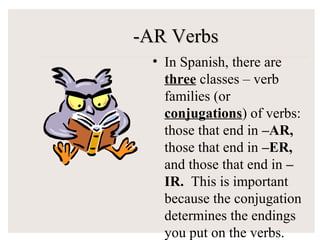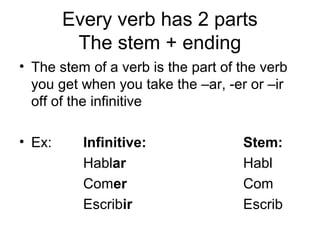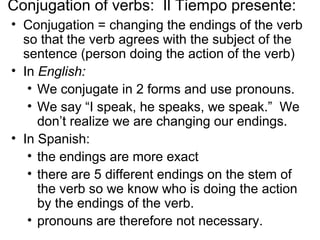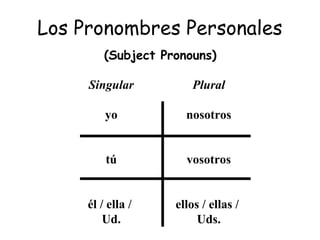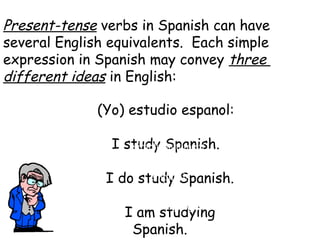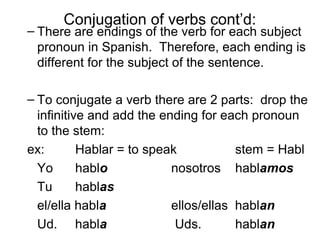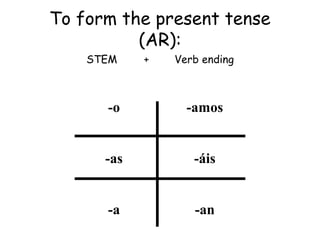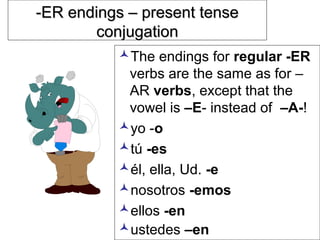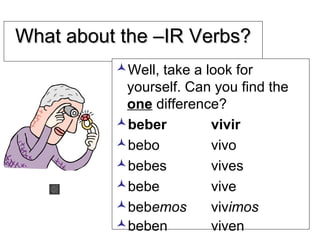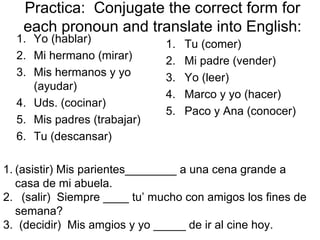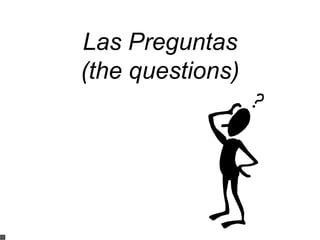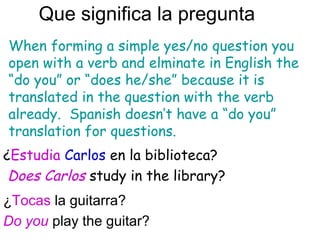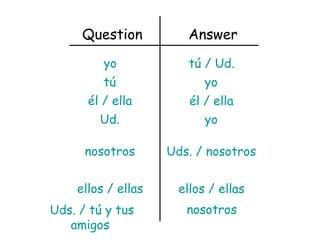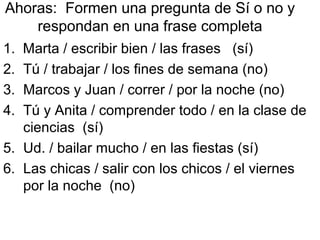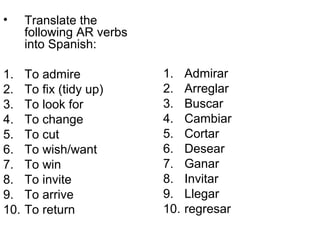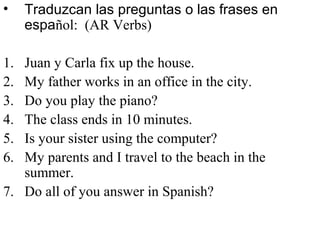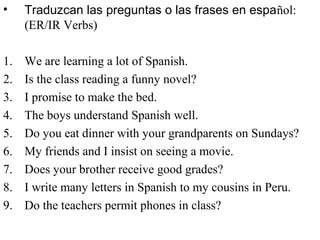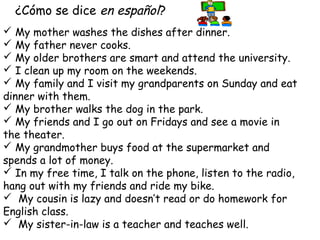This document provides information on conjugating regular -AR, -ER, and -IR verbs in the present tense in Spanish. It explains that Spanish verbs are conjugated based on the subject performing the action to agree with the subject. For -AR verbs, the endings are -o, -as, -a, -amos, -áis, -an. For -ER verbs the endings are the same but with an -e- instead of an -a-. For -IR verbs the endings are the same as -AR verbs except the 'nosotros' form ends in -imos instead of -amos. Several examples of conjugated verbs are given.

